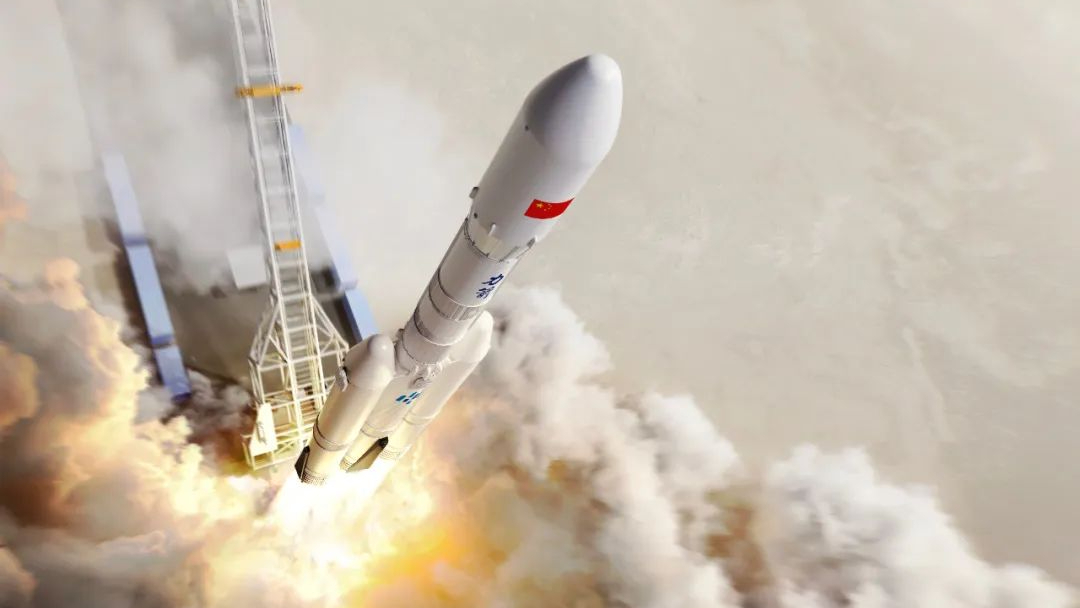Chinese company targets 2025 for 1st launch of powerful new rocket
The Kinetica-2 first stage and boosters will eventually be reusable.

Breaking space news, the latest updates on rocket launches, skywatching events and more!
You are now subscribed
Your newsletter sign-up was successful
Want to add more newsletters?
A Chinese launch company has set August 2025 as the target for the first launch of its Kinetic-2 liquid propellant rocket.
CAS Space, whose full name is Zhongke Aerospace Exploration Technology Company, has already launched its Kinetica-1 (Lijian-1) solid rocket, even briefly setting a national record for the number of satellites aboard a single launch with the vehicle. But the company is also planning a larger, more complex liquid propellant launcher that will eventually be reusable.
Kinetica-2 will be 174 feet (53 meters) tall and consist of an 11-foot-wide (3.35 m) core stage, with two side boosters, Yang Haoliang, vice-president of CAS Space, told Chinese media on Jan. 12. It will use kerosene and liquid oxygen as propellant and be able to carry 17,200 pounds (7,800 kilograms) of payload into a sun-synchronous orbit, or 26,450 pounds (12,000 kg) into low Earth orbit.
Related: China's record-breaking Gravity-1 rocket aces amazing debut launch from ship at sea (video)
Early Kinetica-2 launches will carry experimental payloads for reusability development, according to the company. The plan is to gradually develop core stage and booster reusability by 2028.
CAS Space has already taken steps in the research and development efforts needed to make reusable rockets. In April last year the firm tested liftoffs and landings with a jet-powered prototype to test guidance, navigation and control systems, and the software and communications needed to achieve such a feat.
CAS Space was registered in December 2018. It is a spinoff from the state-owned Chinese Academy of Sciences (CAS). The company does not launch China’s major civilian or military missions and needs to forge its own commercial future.
Breaking space news, the latest updates on rocket launches, skywatching events and more!
It is also developing a suborbital tourism service similar to that offered by U.S. company Blue Origin. It is also initiating a low-cost rideshare program for affordable space science missions.
The company will face competition in China from commercial firms including Landspace, iSpace, Space Pioneer, Galactic Energy and Orienspace.

Andrew is a freelance space journalist with a focus on reporting on China's rapidly growing space sector. He began writing for Space.com in 2019 and writes for SpaceNews, IEEE Spectrum, National Geographic, Sky & Telescope, New Scientist and others. Andrew first caught the space bug when, as a youngster, he saw Voyager images of other worlds in our solar system for the first time. Away from space, Andrew enjoys trail running in the forests of Finland. You can follow him on Twitter @AJ_FI.
